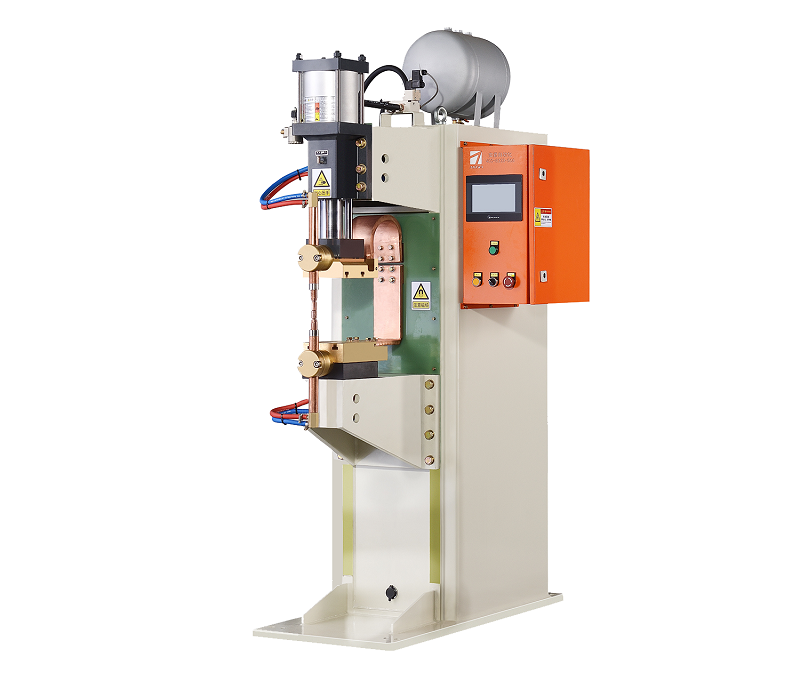Selecting the appropriate electrode material is a critical decision in ensuring the effectiveness and durability of medium frequency spot welding machines. This article discusses the factors to consider when choosing electrode materials and provides insights into the selection process.

- Workpiece Material Compatibility: The electrode material should be compatible with the materials being welded. It’s essential to consider factors like conductivity, thermal expansion, and chemical reactivity to prevent material transfer and contamination during welding.
- Electrode Wear Resistance: Opt for materials with high wear resistance to withstand the mechanical and thermal stresses encountered during welding operations. Materials such as copper alloys, chromium copper, and refractory metals are known for their wear resistance.
- Heat Resistance and Thermal Conductivity: Electrodes should possess good heat resistance to prevent premature deformation or melting during welding. Additionally, a suitable level of thermal conductivity aids in efficiently dissipating heat generated during the welding process.
- Electrical Conductivity: High electrical conductivity is crucial for efficient energy transfer from the welding machine to the workpiece. Copper and its alloys, due to their excellent conductivity, are commonly used electrode materials.
- Corrosion Resistance: Consider the welding environment to choose materials that offer adequate corrosion resistance. This is particularly important when working with materials susceptible to corrosion or in humid conditions.
- Cost and Availability: Balancing performance with cost is essential. While materials like copper tungsten offer exceptional properties, they can be costlier. Evaluate the welding requirements and budget constraints when selecting electrode materials.
- Surface Finish and Coating: Some applications benefit from electrode coatings that enhance wear resistance, prevent sticking, or reduce spatter. Coatings like chrome plating or electrode dressing can extend the electrode’s functional life.
Choosing Electrode Materials:
- Copper and Copper Alloys: These are widely used for their excellent electrical conductivity, good thermal conductivity, and wear resistance. Alloys like Class 2 (C18200) and Class 3 (C18150) copper alloys are common choices.
- Chromium Copper: Chromium copper alloys (CuCrZr) offer high wear resistance, good electrical conductivity, and thermal stability. They are suitable for demanding welding applications.
- Tungsten-Copper Alloys: Tungsten-copper electrodes combine the properties of tungsten’s high melting point and copper’s conductivity. They are suitable for applications requiring high-temperature resistance.
- Molybdenum: Molybdenum electrodes are used for specialized applications requiring high-temperature resistance and low thermal expansion.
The choice of electrode material for medium frequency spot welding machines depends on various factors, including compatibility with workpiece materials, wear resistance, heat resistance, electrical conductivity, and cost. By carefully evaluating these factors and understanding the specific welding requirements, manufacturers can select the optimal electrode material that contributes to efficient and high-quality welding operations.
Post time: Aug-16-2023







